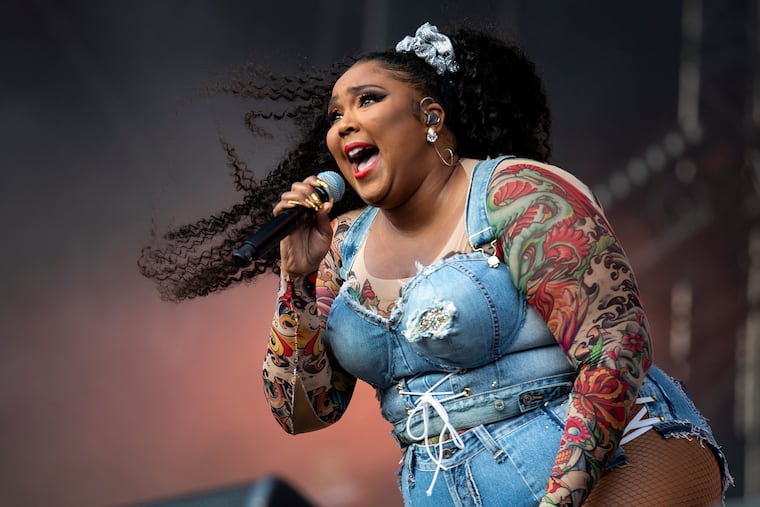When we talk about the allegations against Lizzo, we need to talk about power
Poor working conditions in the music industry are routine, and there is often a lack of accountability.

The recent allegations against Lizzo, a beloved entertainer and advocate for inclusivity, have shaken the music industry to its core, forcing us to confront a grim reality: The very stars we idolize can wield their influence to perpetuate harm.
The lawsuit, filed by three of Lizzo’s former dancers, alleges that the pop star and her production company created an overly sexualized workplace culture and a hostile work environment. The lawsuit claims, among other things, that while at a nightclub in Amsterdam during her tour, Lizzo invited her employees to touch nude performers and engage in other inappropriate acts. Lizzo has forcefully denied these accusations.
Regardless of the disposition and outcome of this suit, it shines a light on a very troubling part of the entertainment world. Poor working conditions in the music industry are routine, and there is often a lack of accountability or institutional oversight for sexual harassment and abuse.
To be sure, Lizzo is not the only pop star who has been sued by her employees. Cher was sued for alleged discrimination and Britney Spears was sued for battery and negligence in 2014. Both cases were dismissed.
Yet as we strive for a more equitable and just society, we must recognize that these kinds of allegations are not symptomatic of one bad apple, but of a rotting tree. We must urgently dismantle toxic power structures and take steps forward to provide comprehensive education to prevent harm before they occur.
The #MeToo movement served as a powerful catalyst for positive change, breaking the silence surrounding sexual misconduct and sparking a global conversation. Hollywood, often seen as a beacon of progressiveness, has found itself at the epicenter of this reckoning. The promise of fame and success, often dangled as bait, creates an environment ripe for manipulation. When those in power wield the authority to make or break careers, victims face a grim choice: come forward and risk jeopardizing their livelihoods, or stay silent, trapped in a cycle of abuse.
This toxic dynamic perpetuates an environment where sexual harm thrives.
When we look at these kinds of accusations, it is important to recognize that sexual violence functions on a continuum. More “mild” behaviors — such as unwanted sexual touch or social norms of entitlement — can become normalized or discredited. Normalization often begins with the gradual erosion of boundaries, as individuals in positions of power exploit their authority to blur the lines between professional conduct and personal transgressions. This can perpetuate a culture of silence and secrecy and can make it difficult to recognize escalating sexual violence.
The media’s role in perpetuating power imbalances and normalizing violence also cannot be understated. Sensationalism has, at times, overshadowed the gravity of the issue, focusing on salacious details rather than the underlying systemic problems.
Hollywood’s penchant for celebrity worship and a culture of silence further compounds the problem. The adoration bestowed upon entertainers often shields them from scrutiny and emboldens their sense of invincibility.
We must demand both responsible reporting and system-level responses that dissect the root causes of these incidents, shedding light on the power dynamics that embolden abusers and perpetuate harm. Only then can we hope to drive meaningful change.
We also need to think about how those within leadership roles can address this problem beyond “cancel culture.” As a restorative justice practitioner and sexual violence researcher, I have witnessed the power that meaningful conversations about power can have for those who experience and cause harm.
This, coupled with more thoughtful implementation of power-based violence prevention education programs, can help create safer spaces and guide those with power to use it justly.
We cannot merely condemn the actions of individuals; we must address the systems that enable them. By dismantling toxic power imbalances, challenging celebrity worship, demanding responsible media coverage, and building in comprehensive prevention infrastructure, we lay the groundwork for a more just and equitable industry.
Laura Sinko is an assistant professor in the nursing department at Temple University College of Public Health with research expertise in cultural and social influences of sexual violence. She is also the director of research and evaluation at Our Wave, an online story-sharing platform for survivors of sexual harm.